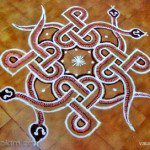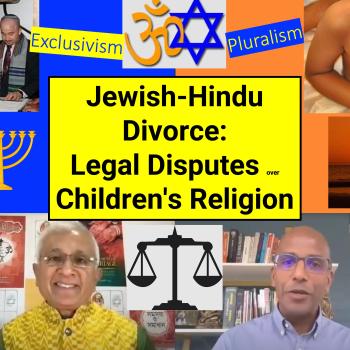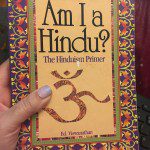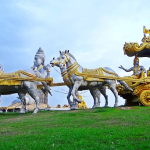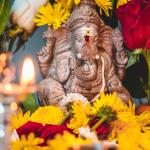The well respected Himalayan Academy and their guru Subramuniyaswami put out a book several years ago called How To Become a Hindu. Over the next few weeks I’ll be reading the chapters and discussing each one individually. Today we’re looking at the third chapter: Gurudeva Speaks on Ethical Conversion.
I’m still irritated that we have yet to actually be told what ethical conversion is in this book. I feel like the chapters were put in backwards.
This chapter is another question and answer section, these ones mostly about why the idea of non-sectarianism is a terrible thing that will lead to “an abyss of mental confusion, divorce, abortion, and suicide.”
I can see his point of view that there is value in following an established path rather than wandering and trying to create your own without the benefit of thousands of years of tradition and knowledge (although, sometimes those years of tradition can also build in problems and seal them so firmly they are hard to root out). Also, he has a fear that Hindus encouraging seeing Truth in other religions will be too willing to weaken Hinduism so as not to rock the boat, as it were.
When he speaks with sadness about people losing the faith of their grandparents, it’s as though he’s forgotten that his own grandparents were Christian.
He does at least acknowledge that people trying to embrace all religions at once are going through an “understandable phase of spiritual evolution.” That is how I look at it. People take their time to find the path that’s best for them and it can take a lot of experimenting sometimes. I don’t see anything wrong with that.
Later he speaks about Christians that he has taught Vedanta to and how anxious they are, trapped by the Christian notion that they have a limited time to get the right answer and get liberation. A feeling that there is only one lifetime to get this done. Yet he sometimes seems to exhibit the same panic in locking people down into established traditions as quickly as possible.
He says that God is unattainable through the Abrahamic religions. I can see why he says that. I think people are capable of overcoming the doctrine and seeing the truth of God within them, but it is true that Abrahamic religions teach that God is separate from the world while Hinduism holds that God is “everywhere and in all things.”
Though he speaks a lot about the disaster that happens when people try to create their own path, there are no actual examples given. I’ve seen some pretty happy neo-Pagans creating a good life and practice for themselves. I mean, sure, I think they’ll be born Hindu later (what can I say, I do have a prejudicial love for my own religion!) but they’re doing fine and seem to be growing spiritually as far as an outsider to their life can tell.
We hear plenty of stories in Hinduism of exceptional individuals who attained moksha not going through the usual channels. A wife’s extreme devotion, for example. Someone who knows no teachings but serves the poor continuously. Stories like this abound. An established tradition is great, but what Subramuniyaswami should remember is that we do have God within us and some people are evolved to the point where they are ready to lead themselves. I don’t think I’m in any position to judge who might be at that point.
His answer on “Why do other religions sometimes use unscrupulous tactics to convert people away from Hinduism?” is a part that I feel agreement on. I hate the predetory nature of evangelical Christianity and can’t stand it when people think everyone has to be a Christian. To shock us, Subramuniyaswami quotes sections from a 1999 speech given by the then-pope about taking over the world with Christianity. Subramuniyaswami doesn’t want to see Hindus be too welcoming of Christians, as many of them come like wolves in sheep’s clothing to try to diminish or destroy Hinduism.
I have long said I don’t think anything could destroy the Eternal Dharma. I don’t believe in fear tactics. I am growing more deeply as a Hindu every day. While some native Hindus drift away or find other paths that they are more in tune with, plenty of people are also finding Hinduism and loving it.



